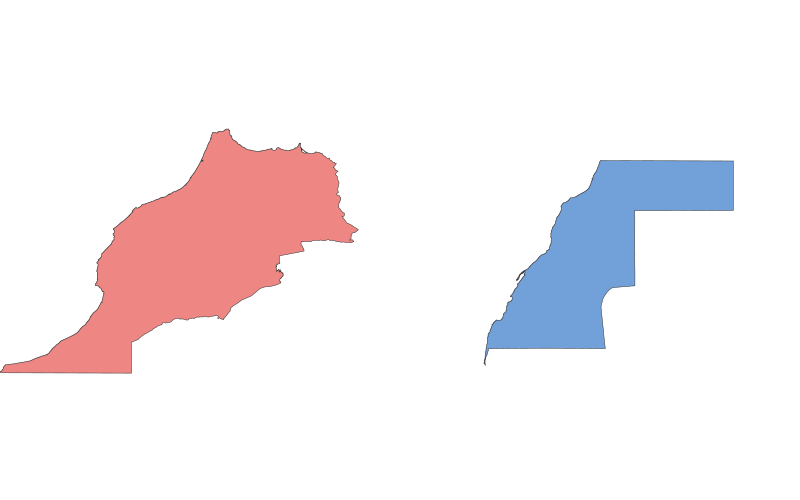Morocco vs. Western Sahara: A Geographical Comparison

Comparison Table
| Category | Morocco | Western Sahara |
|---|---|---|
| Location | Northwest Africa, bordering the Atlantic Ocean and Mediterranean Sea | Northwest Africa, bordering the Atlantic Ocean, Morocco, Mauritania, and Algeria |
| Size | ~446,550 km² | ~266,000 km² |
| Climate | Mediterranean (north), arid (south) | Mostly arid desert |
| Natural Resources | Phosphates, iron ore, fisheries | Phosphates, fisheries |
| Urban Development | High (e.g., Casablanca, Rabat) | Limited (e.g., Laayoune, Dakhla) |
| Transportation | Extensive road, rail, and air networks | Sparse infrastructure, limited roads |
Description
Morocco
Morocco is a North African country with a rich history influenced by Berber, Arab, and European cultures. It gained independence from France in 1956 and has since developed a diverse economy, including agriculture, tourism, and manufacturing. The country is known for its vibrant cities like Marrakech and Fez, as well as its scenic Atlas Mountains and Sahara Desert regions. Morocco's strategic location has made it a hub for trade and cultural exchange.
Western Sahara
Western Sahara is a disputed territory located south of Morocco, claimed by both Morocco and the Sahrawi Arab Democratic Republic (SADR). Historically a Spanish colony, it was annexed by Morocco in 1975, leading to ongoing conflict. The region is sparsely populated, with most inhabitants living in urban centers like Laayoune. Its economy relies heavily on fishing and phosphate mining. The political status of Western Sahara remains unresolved, with the United Nations advocating for a referendum on self-determination.